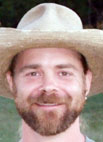
Lori Brown used to teach communications at Greenwood Public Schools. Now she tends her flock so she can spend more time with her family. Lori and her husband, Stan, keep almost 60 wool sheep, along with some goats, a few hair sheep, and a small herd of cattle on 20 acres near Greenwood, Ark.
Stan grew up raising cattle, so the transition over to sheep was fairly easy for him.
“Since junior high, I was showing cattle and steers here in Greenwood,” said Stan. The Browns lost access to a pasture they’d been leasing for their cattle and had to sell off half their herd. With limited pasture available, the change to smaller livestock like sheep just made sense.
“Sheep and goats are a lot safer than cattle,” said Lori. “If you get kicked by a cow, it’s a serious injury. If you get kicked by a sheep, you just bruise.”
“With sheep, you can’t just put out a bale of hay and go off for the weekend,” said Lori. “We have to keep the sheep away from predators, and they tend to get sick quicker than cattle.”
“Disease shows up a lot quicker in sheep,” said Stan
Even though sheep can be more hands-on than cattle, Lori loves the change in lifestyle from teacher to sheep farmer. She gets to spend more time with her three children, Jessica,16, Ethan, 13, and Avery, 11.
“They are very hands on,” said Lori. “We had a momma sheep that died, and she had two lambs. Jessica bottle fed them. Ethan feeds and waters. Avery feeds the goats.”
“We have family land in Paris, Ark., about 60 acres, and we want to move out there when the kids get out of school. My goal is to have the largest hand spinner’s flock in Arkansas, and I’m already pretty close to that now,” Lori said.
Besides selling both raw and processed fleeces, Lori has begun selling spun yarn, as well as making scarves and blankets and other goods out of her finished yarn.
“We sell the finished product as well as fleeces,” said Lori.
Lori said they shear their sheep twice a year, and sell the fleeces, and maybe a lamb or two. At present, they are a no-kill sheep farm, and there’s not much of a market for mutton in their immediate area.
“We don’t send lambs to the sale barn,” said Lori. “We make more money from fleece.”
“We’re trying to diversify in the wool business,” said Lori. “We’ve purchased a rectangle loom, harp loom and floor loom.”







